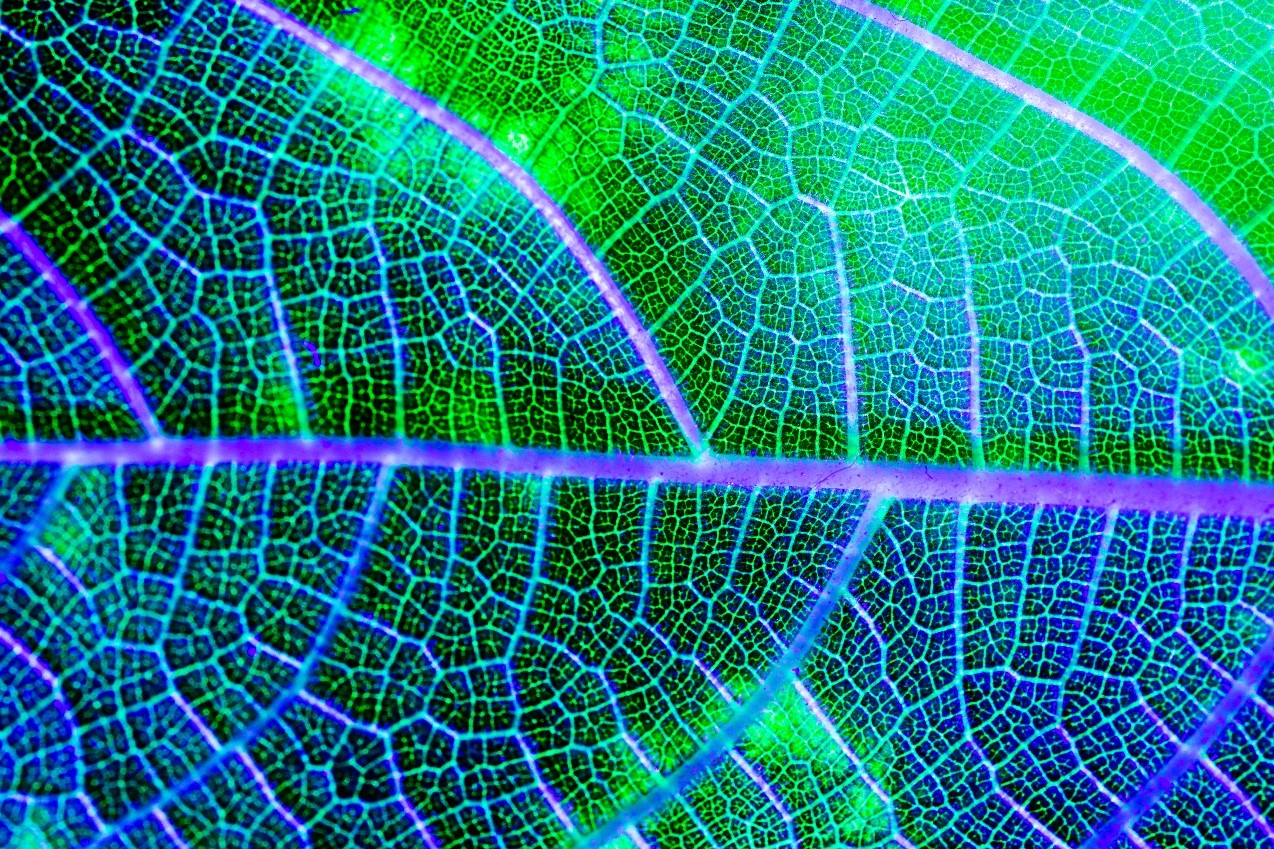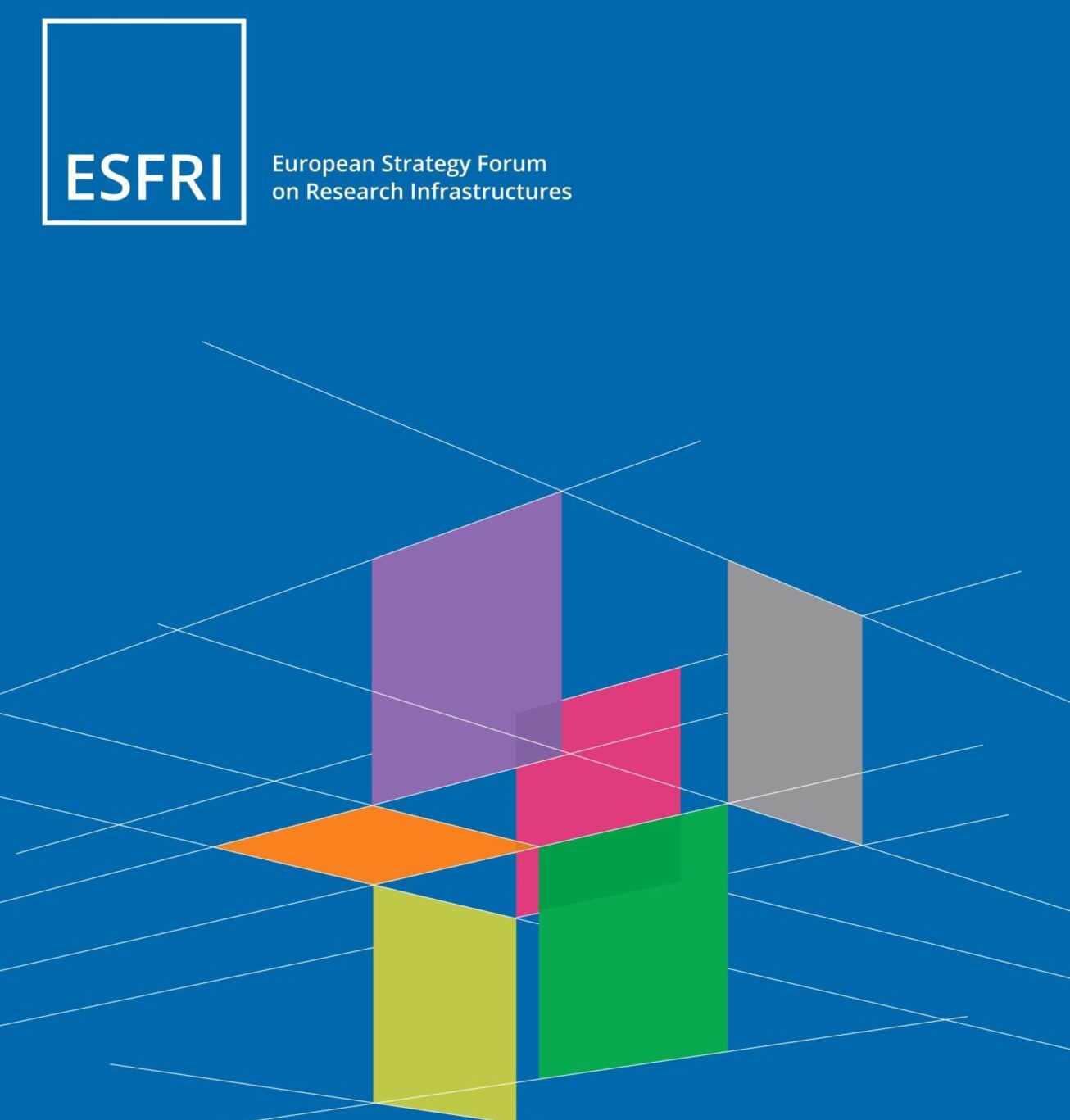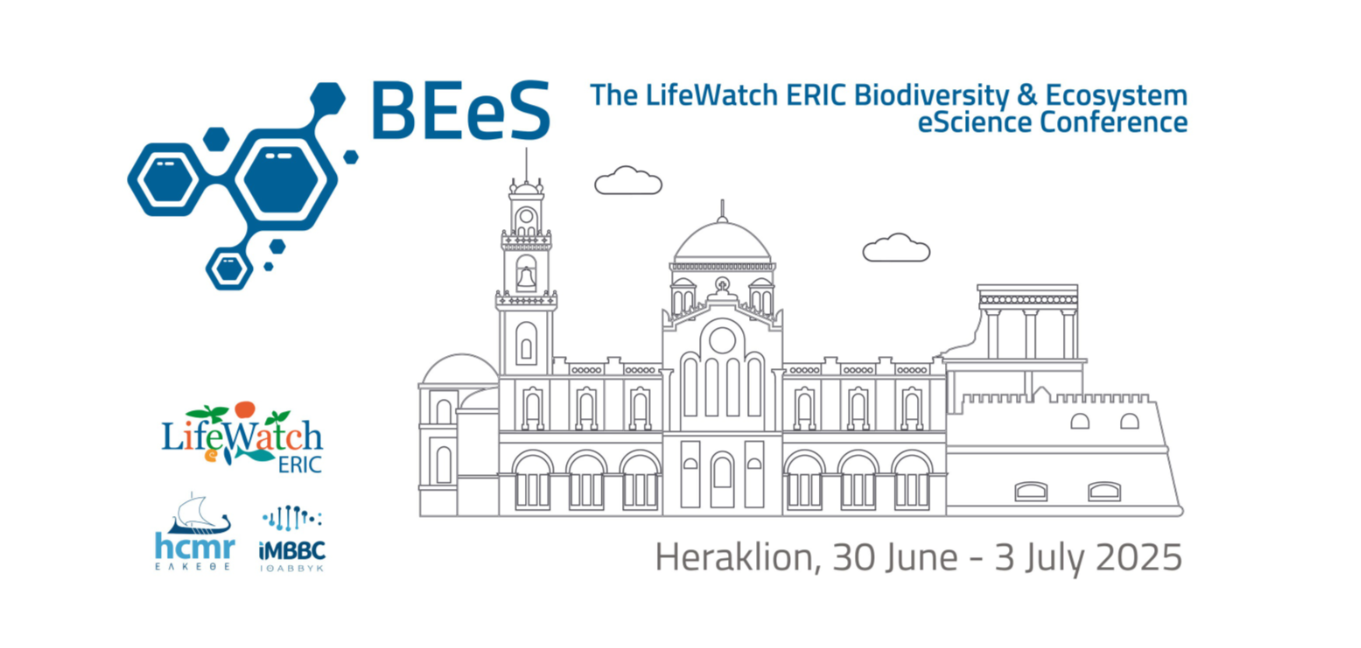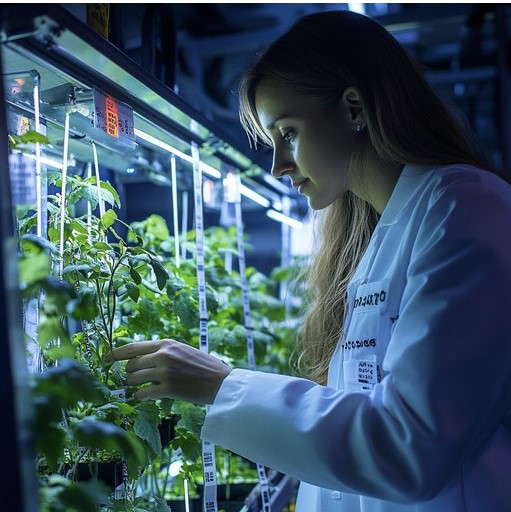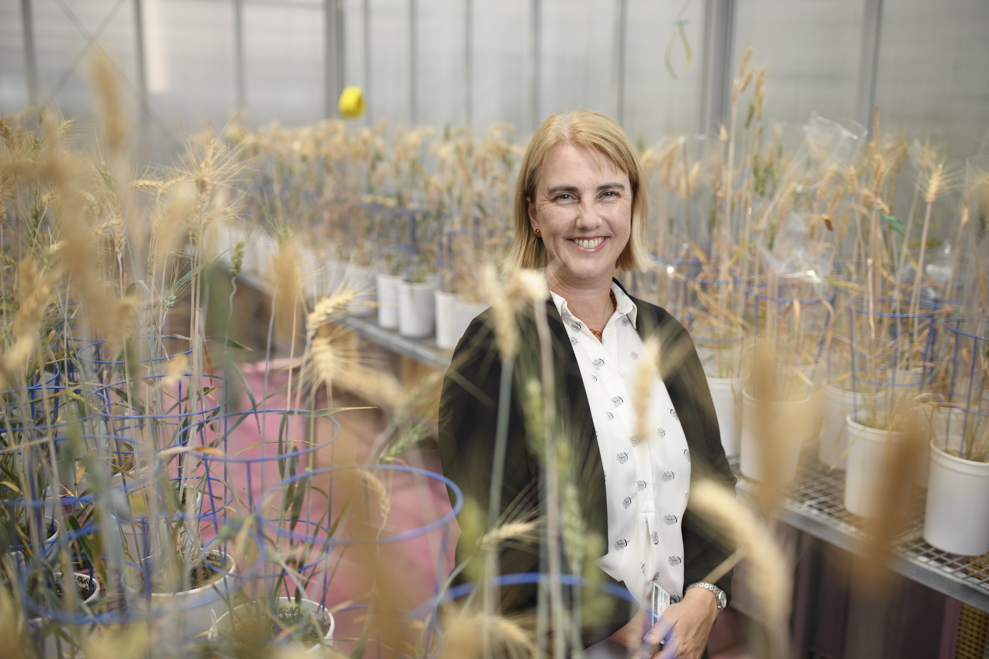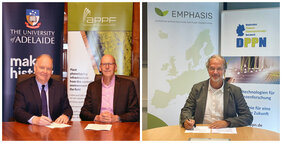New MSCA staff exchange PHENOVOL to advance VOC phenotyping across Europe and beyond
To accelerate the integration of high-resolution phenotyping and genomic insights in plant science, a new Marie Skłodowska-Curie Staff Exchange project — PHENOVOL has been awarded funding. Funded through the Marie Skłodowska-Curie Actions (MSCA), the goal of PHENOVOL is to deepen scientific understanding of plant VOC diversity — the complex blends of plant volatiles, aromatics and essential oils that vary among species and organs and shift in response to environmental stress. Since changes in VOC profiles often occur at early stages of stress exposure, robust and high-throughput VOC phenotyping has huge potential for boosting stress resilience and early signalling in crops. PHENOVOL will see scientists and technical staff across continents collaborate to transform this natural phenotypic complexity into actionable insights for agriculture and plant science.
MSCA Staff Exchanges: Fostering international knowledge transfer
The MSCA Staff Exchanges action funds short-term international and inter-sectoral mobility of research and innovation staff, enabling participating organisations to share knowledge, build lasting collaborations, and strengthen capacities across research ecosystems. Consortia must include at least three partners from three different countries (with a mix of academic and non-academic organisations), and staff mobility is used to exchange expertise, conduct joint research, and organise training and networking events. Importantly, seconded staff return to their home institutions to disseminate knowledge and reinforce cross-institutional linkages.
Through this scheme, PHENOVOL will promote exchanges between academic and industrial partners, enhancing both scientific skills and practical know-how in VOC phenotyping technologies.
A broad consortium driving VOC phenotyping innovation
Co-ordinated by Italy’s CNR (National Research Council), the PHENOVOL consortium spans Europe, South America and beyond, linking leading research institutions with industrial stakeholders. Participating institutions include:
• NOVA University Lisbon (Portugal)
• University of Helsinki (Finland)
• Bulgarian Academy of Sciences (Bulgaria)
• CONICET (Argentina)
• Trakya University (Turkey)
Industrial partners from Italy, Argentina and Turkey will contribute practical perspectives and technological expertise, ensuring results are relevant for both academic discovery and real-world application.
Empowering the next generation of phenotyping scientists
Beyond its scientific mission, PHENOVOL will deliver targeted training activities designed to equip early- and mid-career researchers with state-of-the-art skills in VOC analysis and the interpretation of multidimensional phenomic data. By embedding mobility and hands-on exchange within the project, PHENOVOL also supports professional development and cross-sectoral career pathways — a core objective of the MSCA Staff Exchanges programme.
Strengthening the European phenotyping community
PHENOVOL contributes directly to the strategic goals of the EMPHASIS infrastructure by advancing phenotyping methodologies and fostering cohesive links between laboratories and industrial users across the globe. Its emphasis on VOC profiling expands the phenotyping toolkit available to plant scientists and helps bridge phenotypic complexity with genomic insights — a key challenge for tomorrow’s sustainable agriculture.
ESFRI Landmark submission- 2026 roadmap
The EMPHASIS Coordination Office is very excited to share that our proposal for ‘Landmark’ status in the ESFRI Research Infrastructure framework has been submitted. This is an important milestone for EMPHASIS and highlights the strong commitment of the consortium of countries involved to strengthen plant phenotyping across Europe.
Preparing the application was a real team effort, documenting evidence from across the EMPHASIS community about the scale of investment made to date, the political support for EMPHASIS that exists across Europe, the maturity of our operations and the impact achieved so far, as well as our plans for the future.
The Coordination Office would like to thank all partners, experts and colleagues who shared data, insights and supporting materials, and who worked hard to help us meet the rigorous ESFRI requirements and timelines.
We now eagerly await the next steps in the ESFRI evaluation process, and will keep the community updated as things progress.
Dr Susie Robinson and Inês Pinho in the Coordination Office celebrate pressing the 'submit' button!
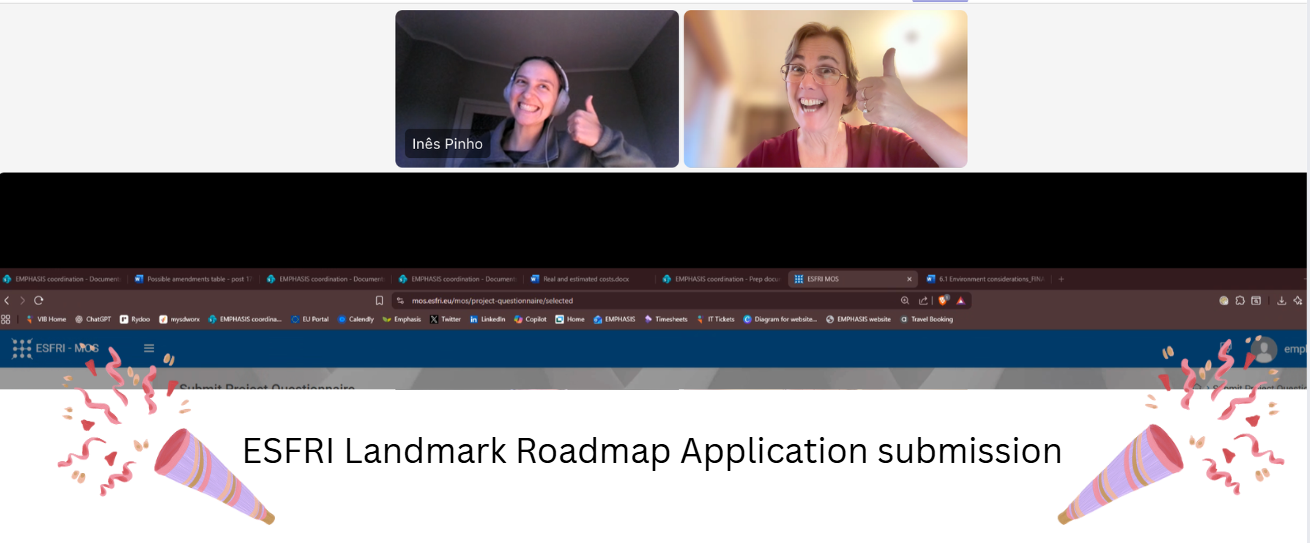
The Crete Declaration: Uniting Science for One Health
Click the link to read the article in full:
At the recent Biodiversity and Ecosystem eScience (BEES) Conference in Crete (30 June – 2 July 2025), Europe’s leading Research Infrastructures, e-Infrastructures, and collaborative projects united to advance coordinated action on today’s most pressing environmental and health challenges.
From antimicrobial resistance and emerging infectious diseases to biodiversity loss and ecosystem degradation, these interconnected threats are intensifying under the strain of human activity and climate change (Keesing et al. 2010).
The One Health approach—recognizing the deep interdependence between human, animal, plant, and ecosystem health (OHHLEP 2022)—was a central theme. It calls for integrated science, technology, and innovation to drive conservation, biosphere restoration, and long-term resilience.
Participants committed to enhancing interoperability across digital and physical infrastructures, ensuring equitable access to data, software, standards, and experimental platforms. By aligning resources across Europe and expanding global partnerships, they aim to deliver cross-domain, actionable science with real-world impact.
The community also urged funders to increase long-term investment in research and innovation to support One Health. Meeting the challenges ahead will require sustained commitment, shared responsibility, and strategic vision.
New publication outlines global vision for plant phenotyping collaboration
We are delighted to share a new commentary published in The Plant Phenome Journal (Vol 8, No 1, 2025)— “The future role of regional research infrastructures and networks toward the global plant phenotyping community” (DOI: 10.1002/ppj2.70048). The article is co-authored by Dr Susie Robinson, incoming Interim Director General of EMPHASIS, Dr Stijn Dhondt, outgoing Interim Director, and other leaders of major regional and international phenotyping organisations.
The paper brings together perspectives from global research infrastructures to explore how the plant phenotyping community can move beyond regional initiatives to a truly connected global collaborative space. It highlights how established infrastructures — including EMPHASIS (Europe), APPN (Australia), NAPPN (North America), and IPPN (international) — already deliver vital services in access, expertise, and training, yet face challenges aligning strategies, data, and resources globally.
The authors propose further developing shared frameworks for data standards, researcher mobility, training, and governance, enabling regional networks to work more seamlessly together. This vision aims to enhance collaboration, increase visibility for phenotyping science, and strengthen its role in addressing global challenges such as climate change and food security.
For EMPHASIS, this publication reinforces our commitment to fostering collaboration across borders and advancing plant phenotyping as a cornerstone of sustainable, data-driven agriculture. We look forward to working with partners worldwide to help realise the vision it outlines. Read the full article here: http://dx.doi.org/10.1002/ppj2.70048
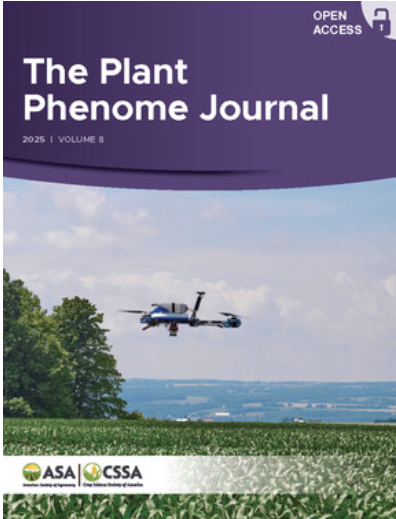
EMPHASIS Welcomes Dr Susie Robinson as Interim Director General, Effective January 2026
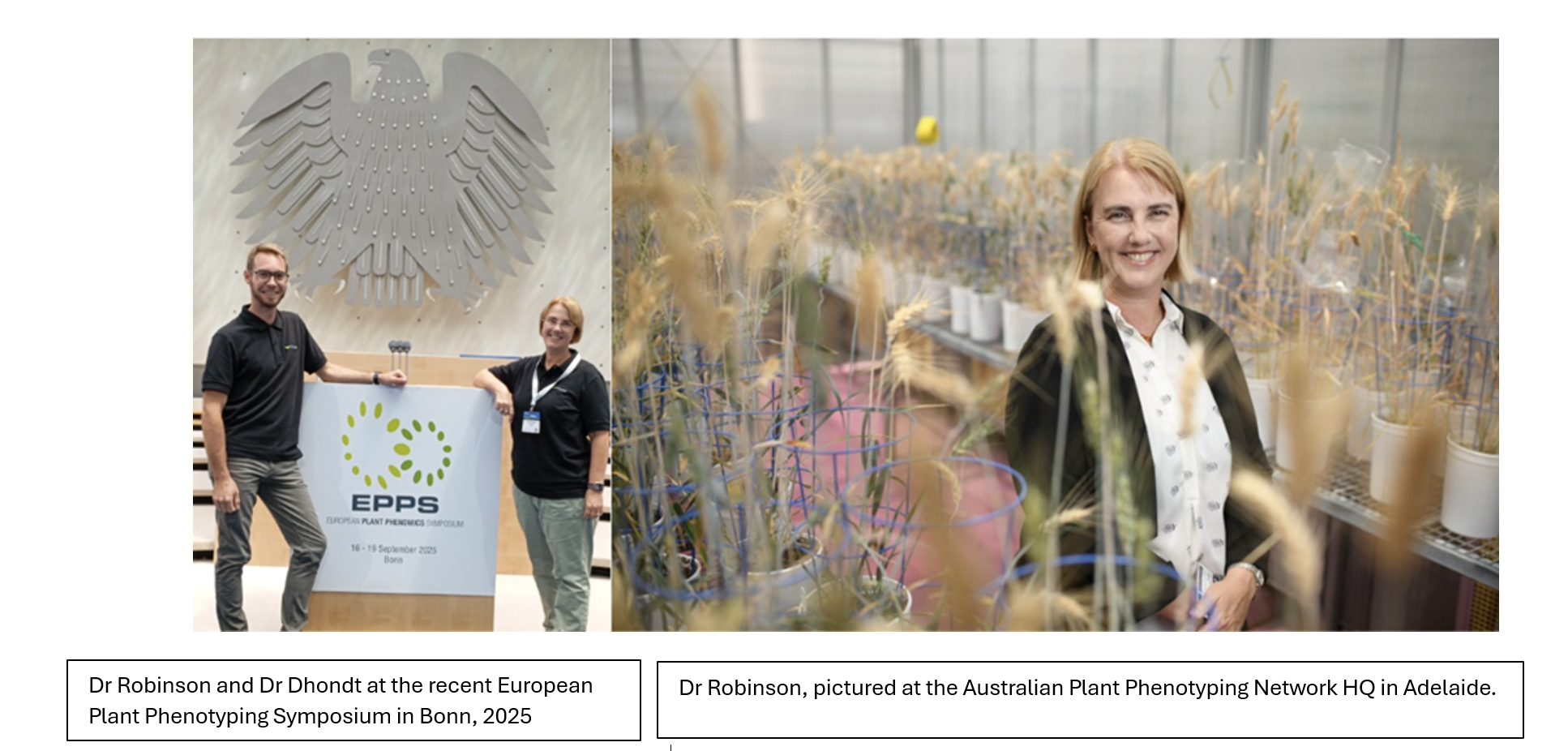
We’re delighted to share that Dr Susie Robinson will be joining EMPHASIS as the Interim Director General, effective January 2026. Dr Robinson was appointed after an international recruitment process overseen by the Interim General Assembly of EMPHASIS. Her appointment will be at VIB in Belgium, where EMPHASIS is headquartered.
Susie Robinson brings highly relevant prior experience at a senior executive level, including having previously led the Australian Plant Phenomics Network, along with other prior roles spanning research, consultancy, government and corporate governance in Australia and the UK. She has already provided invaluable service as an expert consultant to EMPHASIS during 2025, meaning she is well known to the European plant phenotyping community. Dr Robinson notes, “I am hugely excited to be stepping into this role at such an exciting time for EMPHASIS. Plant phenotyping is increasingly recognised as critical for safeguarding Europe’s future in agriculture and the plant-based bio-economy. We have an outstanding consortium of countries that are deeply committed to this future, and it is a privilege to lead EMPHASIS in playing its part.”
Dr Silvana Moscatelli, the Interim General Assembly Chair, states: “We are delighted to be officially welcoming Susie as EMPHASIS Interim Director General. She brings a unique blend of skills and experience, offering valuable insights into country priorities, scientific infrastructure needs, and effective operating models. Her appointment strengthens EMPHASIS and its path towards a fully operational European Research Infrastructure Consortium (ERIC) in 2026 and beyond”
The EMPHASIS team also wish to extend heartfelt thanks to Dr Stijn Dhondt, who has ably led EMPHASIS since its headquarters were established in Belgium in 2023. Stijn’s outstanding work and dedication have been truly invaluable.
The Flemish Government has officially announced its dedicated support for EMPHASIS ERIC
Big news for European plant science! The Flemish Government has officially announced its dedicated support for EMPHASIS ERIC.
We are thrilled to share that the government has approved a ‘Host Country Premium’ of €1.8 million for the first five years of EMPHASIS operation. This new commitment comes on top of their previous generous contribution of €1.8 million to VIB for the development and implementation of our pan-European plant phenotyping infrastructure.
A sincere thank you to the incredible team at the Departement WEWIS – economie, wetenschap en innovatie, especially Liselotte De Vos, for their exceptional dedication in securing this vital funding.
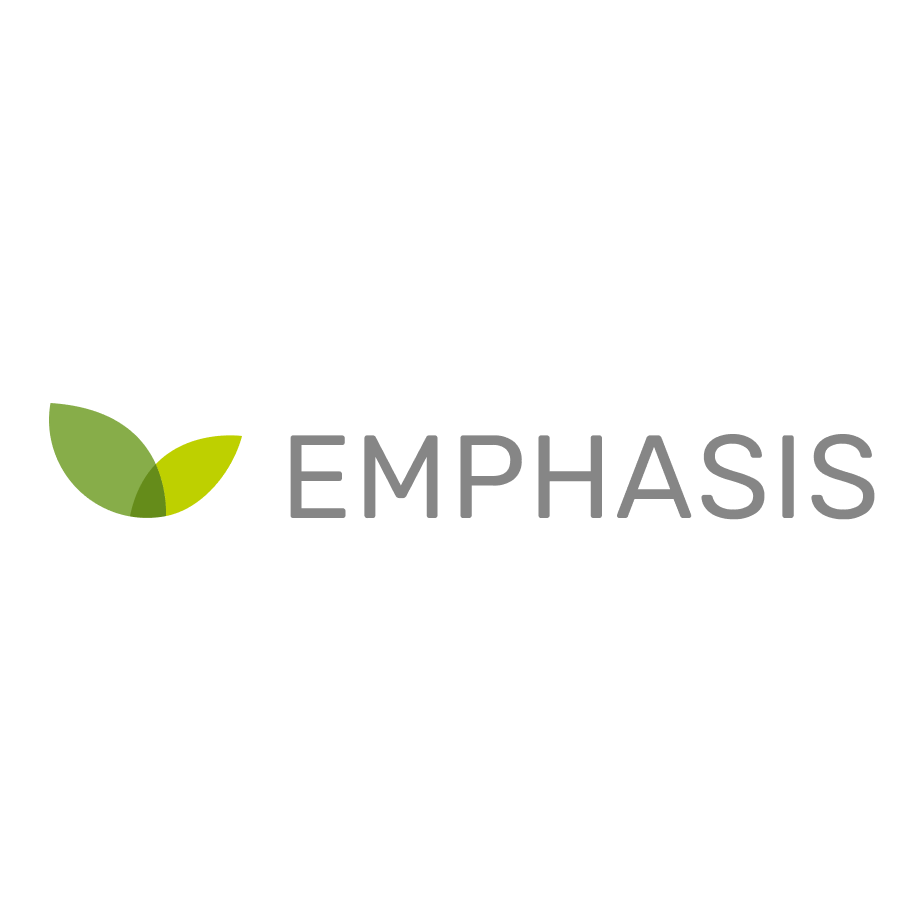
European Life Science RIs Position Paper on FP10
The European Life Science Research Infrastructures (LS-RIs) have released a joint position paper titled “Driving Innovation and Collaboration: A Strategic Vision for European Life Science Research Infrastructures in Framework Programme 10 (FP10).” This paper presents key messages for the upcoming Framework Programme for Research (FP10) and is timed with the current evaluation of Horizon Europe. It aims to influence the development of research, technology, and innovation policies beyond 2027, ensuring that FP10 priorities include essential fields of life science research supported by Research Infrastructures.
The key messages for consideration are:
- Strengthening established European Research Infrastructures as strategic assets.
- Securing adequate funding.
- Fostering use and visibility of RIs.
- Providing cluster funding.
- Allocating resources for impact assessment.
- Leveraging the emergent synergies of INFRA-ERV projects and continue TNA budget.
As Europe prepares for FP10,i t is crucial to ensure that LS-RIs continue to drive scientific innovation and foster collaboration.
The full paper can be read here.
AgroServ’s Second Call for Proposals is Now Open!
This call invites researchers, farmers, biotechnologists, and entrepreneurs to explore innovative solutions that align with the principles of modern agroecology. AgroServ supports the cooperative use of resources offered by these research infrastructures, making it a unique platform for promoting sustainable agricultural practices.
For further details, including guidelines and instructions on submitting your research proposals, please visit our website:
If you have any questions, please contact:
Dr. Heba Ibrahim: agroserv-access@fz-juelich.de
International collaboration targets global food challenges
Plant phenotyping is a growing field of plant science that specialises in capturing data via point sensors, imaging systems and remote sensing platforms, then utilising data management and analysis to more efficiently validate new traits and environmental dynamics.
The APPF and EMPHASIS are both world-leading infrastructure facilities enabling researchers to quantify and understand plant structure and function, which in turn helps accelerate the development of more resilient and higher yielding crops. Closer collaboration between the two organisations will lead to greater research efficiencies based on ‘standard’ profiles for experiment documentation and data, shared technical innovations, greater project cooperation and avoiding research duplication.
APPF is supported by the Australian Government’s National Collaborative Research Infrastructure Strategy (NCRIS) and hosted by the University of Adelaide.
University of Adelaide Deputy Vice Chancellor and Vice President (Research) Professor Anton Middelberg sees great value in the partnership. “Sharing knowledge is fundamental to progressing innovation in plant phenomics and this MOU has been drafted by both parties to establish the framework within which our cooperation can be developed,” he says. “We are looking forward to working together via virtual events, workshops and seminars.”
“The agreement also establishes joint principles for collaboration and agreed sets of standards that will benefit the plant science and plant phenotyping communities in Europe and Australia. It will broaden the scope of our research and create joint opportunities for education and outreach, project funding, and sharing phenotyping information that advances plant science at the University.”
APPF Chief Executive Director Richard Dickmann says the APPF is excited about working with its European equivalent. “The agreement recognises the world-class capabilities of the APPF and will have benefits for Australian farmers, regional communities and people choosing a career linked to agricultural research. We are now establishing a working committee to implement our pathway forwards,” he says.
EMPHASIS coordinator Professor Ulrich Schurr, director of Institute for Plant Sciences, Research Centre Jülich, says Australia and Europe have worked hand-in-hand to pioneer modern plant phenotyping over the last decade. “We are excited to further extend this very successful cooperation and strengthen the connection between plant phenotyping researchers from APPF with the European plant phenotyping community organised by EMPHASIS,” he says.
Dr Inmaculada Figueroa, Vice Chair of the European Strategy Forum on Research Infrastructures (ESFRI) is also positive about the new Memorandum of Understanding. “International cooperation in science and technology linking research infrastructures is an important part of addressing major global challenges such climate change, sustainable agriculture and food security,” she says. “The cooperation between APPF and EMPHASIS represents an important step to jointly and synergistically address these global challenges.”
About APPF and EMPHASIS
The Australian Plant Phenomics Facility, funded under NCRIS, is a distributed network of national research infrastructure platforms offering open access to plant phenomics technologies, tools and expertise. Current partners are The University of Adelaide and the Australian National University.
The European Infrastructure for Multi-scale Plant Phenomics and Simulation (EMPHASIS) is a distributed Research Infrastructure project of ESFRI Roadmap with the goal to develop and provide access to state-of-the-art phenotyping facilities and services addressing multi-scale phenotyping in different agro-climatic scenarios across Europe.
(Text: APPF/University of Adelaide)
ALL-Ready – The EU Agroecology Living Lab and Research Infrastructure Network
The network was officially launched in December 2021 with 15 members after a six-month selection and preparation process. Aiming for an open and dynamic network, four additional initiatives joined the network in November 2022, resulting in a total of 19 members. 11 members identify as LL, seven as RI and one (ACS) identifies as both a LL and RI.
A Danish funding programme, the Organic Research, Development and Demonstration Programme also joined the pilot network as an observer in order to learn from the members as they aim to fund and user-centered, LL-like research projects focusing on organic farming and food systems.
The membership of the network is truly diverse, representing all four European regions (Northern, Southern, Western, and Eastern Europe), with members from eight EU countries, the United Kingdom, Switzerland and Canada. The members also differ in terms of size and objective. Many have broad goals concerning agroecology, namely, to improve agronomic practices, agrotechnology across various agricultural sectors (arable farming, horticulture, etc.), while some have specific aims and focus on single areas such as the reduction of antimicrobials in animal husbandry or improving the uptake of digital tools in agroecology. Some of them are LLs certified by ENoLL, while the majority are open innovation structures representing national or territorial networks, LL-like projects, or experimental sites.
The members also differ regarding the geographic scope of their activities. Most RIs tend to have an international scope (ISF, LifeWatch ERIC, EMPHASIS), while there are some with a local (ZAPVS) or a regional focus (ReWet). Many member LLs operate on a national (PA4ALL, ÖMKi, IF, Carbonfarm, InoFA, ACS) or regional level (LLAEBIO, PFN Hessen, Guadalinfo). The members also represent diverse levels of experience, from beginners (fewer than one or two years) (Occitanum, Hessen) to mature two-five years) (LLAEBIO, InoFA, PA4ALL, ISF, LifeWatch-ERIC, ROADMAP, EMPHASIS) and to very experienced (more than five years) (ÖMKi, OasYs, ReWet, Biobase, ZAPVS, IF, Carbonfarm, FiBL, ACS).
Network members also differ from small to large-scale initiatives regarding the number of users they work with. In agroecology LLs, users are usually farmers, but may also be consumers or other takeholders in the agri-food value chain. In agroecology RIs, users are almost always researchers, and only occasionally farmers, advisors, or citizens. The majority of the members cooperate with small (below 50 users) (PA4ALL, LifeWatch-ERIC, OasYs, Carbonfarm, PFN Hessen, EMPHASIS) or medium cale (50 – 200 users) (LLAEBIO, ÖMKi, ROADMAP, Occitanum, Biobase, InoFA, FiBL, Guadalinfo) user communities and only a few of them have more than 200 users (ISF, ReWet, ZAPVS, IF).
The pilot network was also designed to allow real-life experimentation on the structuring and unctioning of the future European network of agroecology LLs and RIs based on co-creation and participatory methods, and the lessons learned can directly inform the setting up of the future network and the Agroecology Partnership.
This project has received funding from the European Union’s Horizon 2020 research and innovation programme under grant agreement No 101000349 (ALL-Ready).
ALL_Ready 2023 EN 2023-11 online.pdf
